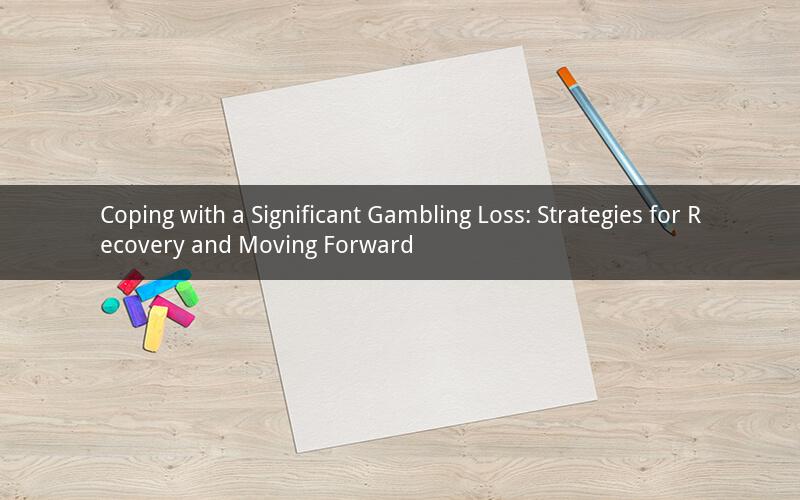
When faced with a substantial gambling loss, the emotional and financial impact can be overwhelming. However, there are several effective strategies that can help individuals deal with this difficult situation and move forward. This article will explore various approaches to managing a big gambling loss, including seeking support, reassessing one's values, and developing healthy coping mechanisms.
1. Seek Support
Dealing with a significant gambling loss is often easier when individuals reach out for support. Here are some ways to seek help:
- Talk to friends and family: Sharing your struggles with trusted loved ones can provide emotional support and a sense of validation.
- Attend a support group: Joining a gambling support group, such as Gamblers Anonymous, can connect you with others who have experienced similar challenges.
- Seek professional help: A therapist or counselor can help you navigate the emotional and psychological aspects of your gambling loss.
2. Reassess Your Values
A big gambling loss can serve as a wake-up call to reassess your values and priorities. Consider the following steps:
- Reflect on your goals: What are your long-term goals, and how does gambling fit into this picture?
- Evaluate your spending habits: Are there areas where you can cut back on expenses to recoup some of your losses?
- Consider the consequences: Reflect on the negative outcomes of your gambling habits and how they have affected your life.
3. Develop Healthy Coping Mechanisms
To prevent future gambling losses, it's essential to develop healthy coping mechanisms. Here are some suggestions:
- Engage in alternative activities: Find new hobbies or interests that can fill the void left by gambling.
- Practice mindfulness: Mindfulness techniques, such as meditation or deep breathing exercises, can help you stay grounded and focused.
- Set boundaries: Establish clear limits on your gambling activities to prevent future losses.
4. Financial Recovery
Recovering from a significant gambling loss often involves addressing the financial implications. Consider the following steps:
- Create a budget: Develop a budget that accounts for your expenses, savings, and debt repayment.
- Prioritize debt repayment: Focus on paying off any outstanding debts related to your gambling loss.
- Seek financial advice: Consult with a financial advisor to help you navigate the process of recovering from your losses.
5. Learn from the Experience
Lastly, it's crucial to learn from your experience and prevent future gambling losses. Here are some ways to do so:
- Reflect on your triggers: Identify what led you to gamble excessively and work on addressing those triggers.
- Develop a relapse prevention plan: Create a plan that outlines steps to take if you feel the urge to gamble again.
- Celebrate your progress: Acknowledge the progress you've made in overcoming your gambling addiction and celebrate your successes.
Frequently Asked Questions:
Q1: How long does it take to recover from a big gambling loss?
A1: The recovery process can vary depending on the individual and the severity of the loss. Some people may recover within a few months, while others may take years.
Q2: Can I still enjoy gambling if I've had a big loss?
A2: Yes, it's possible to enjoy gambling responsibly. However, it's essential to set limits, stay aware of your spending, and seek support if you feel your gambling is becoming problematic.
Q3: Will I ever fully recover from a big gambling loss?
A3: While you may never fully recover the money you lost, you can certainly learn from the experience and move forward with a healthier mindset and better financial management skills.
Q4: Can I get help for a gambling addiction if I've had a big loss?
A4: Yes, there are various resources available to help individuals struggling with gambling addiction, including support groups, counseling, and therapy.
Q5: How can I prevent future gambling losses?
A5: To prevent future losses, it's crucial to establish healthy coping mechanisms, reassess your values, seek support, and learn from your past experiences. Setting clear boundaries and limits on your gambling activities is also essential.